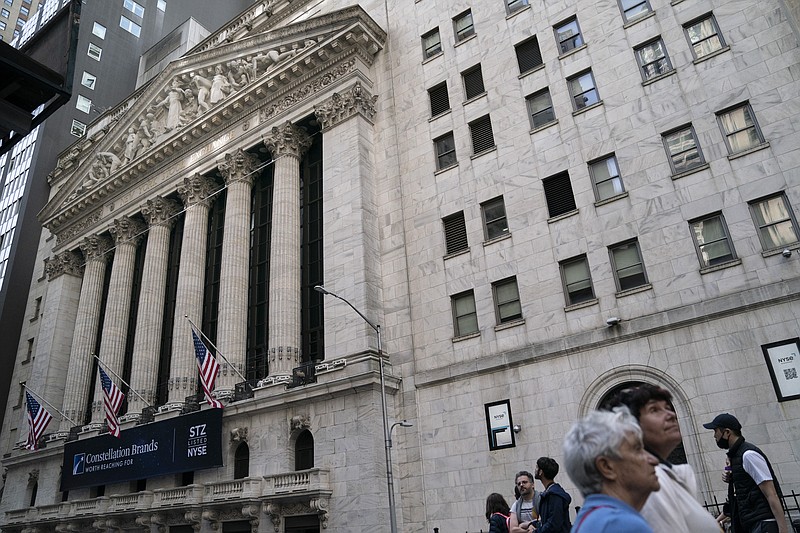From 2019 to 2021, during the time of the pandemic — 183 current senators or representatives reported a trade of a stock or another financial asset by themselves or an immediate family member while more than half of them, 97, sat on congressional committees that potentially gave them insight into the companies whose shares they reported buying or selling, according to an analysis published last week in the New York Times.
Ten of them with potential conflicts are ours -- six from Tennessee, two from Georgia and two from Alabama. All but one of the "ours" on this sad and disgusting list are Republicans.
Among Tennessee's contributions are U.S. Rep. Chuck Fleischman, R-Ooltewah, and Tennessee Sen. Bill Hagerty, as well as House Reps. John Rose, of Cookeville; Mark Green, of Clarksville; Diana Harshbarger, of Kingsport; and Steve Cohen, a Memphis Democrat.
From Georgia are U.S. Reps. Rick Allen, of Augusta, and Austin Scott, of Tifton. No -- Marjorie Taylor Greene, R-Rome, is not on the list. Nor are the Peach State's Democratic Sens. Jon Ossoff and Raphael Warnock.
Hailing from North Alabama is Rep. Mo Brooks, of Huntsville, and Sen. Tommy Tuberville, of Auburn.
You can read more about the Tennessee and Georgia lawmakers and their trades in Andy's Sher's front page story in Saturday's Chattanooga Times Free Press.
Altogether, the potentially conflicted stock trades reported by all 97 lawmakers or their family members that could have been affected by their legislative committee work over those three years represents nearly a fifth of Congress.
Federal lawmakers aren't prohibited from investing in any company, including ones that could be affected by their actions. But they should be.
And it's not because no one has suggested it, or even introduced legislation to ban sitting lawmakers from trading stocks. In fact, this is an old issue. The trouble, of course, is that the proposals just don't ever get votes -- or enough votes.
The Times cited ethics experts saying trading patterns highlight longtime concerns about the potential for conflicts of interest or use of inside information. You think?
The newspaper said it analyzed transactions between 2019 and 2021 using a database of members' financial filings called Capitol Trades created by 2iQ Research. The trades were then compared against relevant committee assignments and the dates of hearings and congressional investigations. The Times acknowledges that it "could not account for every committee that affects each company; as a result, the analysis is surely an undercount."
A fifth of Congress? And it's "surely" an undercount?
In a time when the public's trust in the institutions of government could only be lower if it were literally in the gutter, one would think such a stinky-seeming scenario shouldn't bring a single "no" vote. But here we are. Still waiting.
The St. Louis Post Dispatch points out that people have gone to prison for circumstances that look this much like insider trading. (Remember Martha Stewart? And, oh yeah, former Rep. Chris Collins, a Republican from New York who resigned in 2019 after pleading guilty to charges related to giving his son insider information about a failed drug trial at an Australian biotech company on whose board the lawmaker served. He spent some time in prison before being pardoned by then-President Donald J. Trump.)
But none of these so-called public servants featured in the Times story and possibly profiting on the pandemic, have been put on the spot. What few ethics probes have been launched in Congress ultimately were dropped.
The Dispatch writes: "No wonder Congress' approval rating is under 20% these days. The only mystery, in fact, is how it is that almost one-fifth of Americans still give these shameless self-dealers the benefit of the doubt."
No more. It's time for voters to weigh in on a public letter from a bipartisan group of House members pushing congressional leaders to embrace a set of reform "first principles." The letter blatantly states the goal is to pass a law "to end insider trading by Members of Congress."
It would require members, their spouses and dependents under 18 to either divest their holdings or put them in blind trusts, standard mutual funds, U.S. Treasury bills or other forms that would prevent the holders from having direct control over the investments.
For the most part the folks the Times has listed on what we've dubbed the "sad list" say they've done the blind trust thing. Well, sorry guys.
It doesn't look so very "blind" from the cheap seats out here in voterland where 401ks are diving fast.
